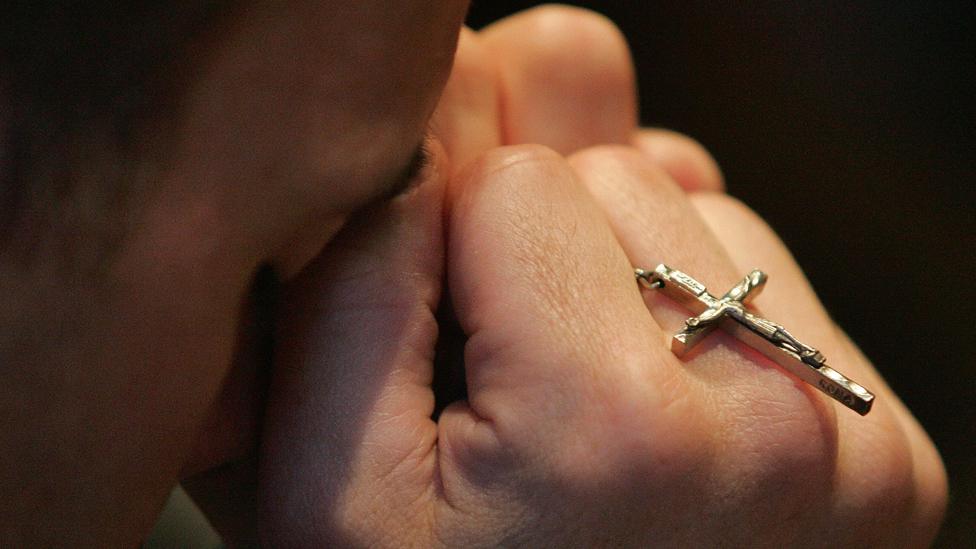'Gay conversion therapy' ban drafted in law in Germany
- Published

An estimated 1,000 people are subjected to conversion therapy in Germany every year
A draft law has been published in Germany aimed at banning so-called "gay conversion therapy" in most cases nationwide, German media report.
The law is intended to stop groups offering the service - which claims to be able to change a person's sexual orientation - to under-18s.
Any violation could result in a fine or up to a year in prison.
Research suggests the controversial practice can lead to depression and increase the risk of suicide.
Under the draft law published on Monday, consenting adults can still request the service in Germany, but they would have to show that they had not been deceived, coerced or threatened into taking part.
The move was announced by Germany's Health Minister Jens Spahn, who said that "gay conversion therapy" makes people sick, not well, Germany's Deutsche-Welle newspaper reported.
Mr Spahn, who is gay himself, said the ban would send an important message to "all those who are struggling with their homosexuality".
"It's OK to be the way you are," he added.
Mr Spahn, a member of Chancellor Angela Merkel's Christian Democrats (CDU) party, first announced plans to ban the practice in June.
"We have to convince parents to accept their children the way they are and we must take away the worries from young people to feel ashamed," he said at the time.
It is believed that many LGBT people in Germany, as in many other Western countries, avoid holding hands in public for fear of negative reactions.
Conversion therapy, sometimes called "reparative" or "gay cure" therapy, is a term used for any form of so-called treatment that attempts to change sexual orientation or reduce attraction to others of the same sex.
Experts say the word therapy is misleading because there is no scientific basis for it. Some forms of the practice can include hypnosis or electric shocks.
It is estimated that about 1,000 people are subjected to conversion therapy in Germany every year, according to the Magnus Hirschfeld Foundation, a Berlin-based human rights organisation.

You might also be interested in:
'I was given electric shocks for being gay'
- Published16 September 2019

- Published2 April 2019

- Published25 July 2019

- Published14 May 2019

- Published1 October 2017

- Published22 July 2017
